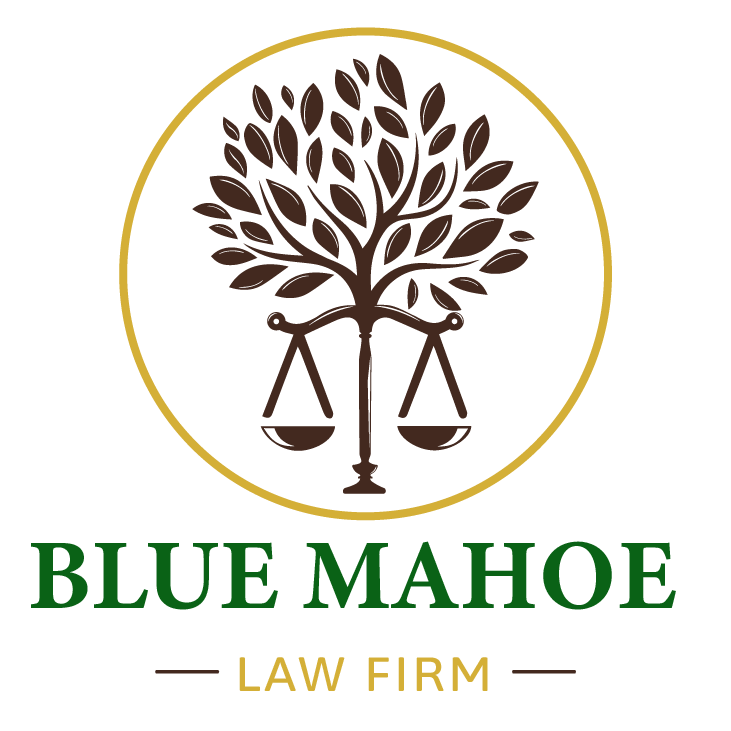Protecting Your Brand: A Guide to Trademarks in South Florida
In the vibrant and competitive landscape of South Florida, building a strong brand is paramount to success. Whether you're a burgeoning startup in Miami's tech scene, a beloved family-owned restaurant in Fort Lauderdale, or a creative entrepreneur in West Palm Beach, your brand represents your reputation, your quality, and your unique identity. But in a marketplace teeming with innovation and competition, how do you safeguard this invaluable asset? The answer lies in trademark registration.
At Blue Mahoe Law, we understand the importance of protecting your intellectual property. Serving South Florida and the Caribbean diaspora, we offer legal services in estate planning, probate, business law, and intellectual property. This blog post will delve into the significance of trademark registration and guide you through the process of securing protection for your brand in South Florida.
Why Trademark Registration Matters
A trademark is a symbol, design, or phrase legally registered to represent a company or product. It distinguishes your goods or services from those of your competitors, fostering brand recognition and customer loyalty. In South Florida's diverse and dynamic market, trademark registration offers several crucial advantages:
- Exclusive Rights: Registering your trademark grants you exclusive nationwide rights to use it in connection with your goods or services. This prevents others from using confusingly similar marks, reducing the risk of brand dilution and unfair competition.
- Legal Protection: A registered trademark provides a strong legal basis for enforcing your rights. If someone infringes on your trademark, you can take legal action to stop them and seek damages.
- Enhanced Brand Value: A registered trademark is a valuable asset that can increase your company's worth. It signals to customers and investors that you are serious about protecting your brand and building a reputable business.
- Deterrence: The presence of a registered trademark symbol (®) acts as a powerful deterrent, discouraging potential infringers from using your mark.
- Access to Federal Courts: Trademark registration allows you to file lawsuits in federal court, which often provides a more favorable venue for intellectual property disputes compared to state courts.
- International Protection: While a U.S. trademark registration does not automatically provide international protection, it can serve as a basis for obtaining trademark protection in other countries.
In South Florida, where businesses cater to a diverse clientele and compete in a bustling market, the need for trademark protection is particularly acute. Without it, your brand is vulnerable to imitation, dilution, and misappropriation.
The Trademark Registration Process: A Step-by-Step Guide
Securing a trademark involves a meticulous process that requires careful attention to detail. Here's a breakdown of the key steps:
- Trademark Search:
- Before filing an application, it's crucial to conduct a thorough trademark search to ensure that your desired mark is available.
- This involves searching the United States Patent and Trademark Office (USPTO) database, as well as other online resources and common law sources.
- A comprehensive search helps identify any existing marks that are identical or confusingly similar to yours, preventing potential conflicts and saving you time and money.
- Blue Mahoe Law can conduct comprehensive searches to find potential conflicts.
- Determine the Proper Classification:
- Trademarks are classified into 45 different classes of goods and services.
- It's essential to identify the correct class or classes that correspond to your products or services.
- This classification determines the scope of your trademark protection.
- Accurate classification is very important, and errors can cause rejection of the application.
- File a Trademark Application:
- Once you've completed your search and determined the proper classification, you can file a trademark application with the USPTO.
- The application must include a clear description of your mark, a list of the goods or services associated with the mark, and a specimen showing how the mark is used in commerce.
- There are two main types of applications, “use in commerce” and “intent to use”.
- The application can be filed online through the USPTO's Trademark Electronic Application System (TEAS).
- Examination by the USPTO:
- After filing your application, it will be assigned to a USPTO examining attorney.
- The examining attorney will review your application to ensure that it meets all legal requirements.
- They will also conduct their own search to identify any potential conflicts.
- If the examining attorney finds any issues with your application, they will issue an office action, requesting clarification or amendments.
- Responding to Office Actions:
- If you receive an office action, you must respond within the specified time frame.
- This may involve providing additional information, amending your application, or arguing against the examining attorney's objections.
- Failure to respond to an office action can result in the abandonment of your application.
- This is where having a skilled attorney is very important.
- Publication for Opposition:
- If the examining attorney approves your application, it will be published in the USPTO's Official Gazette.
- This publication allows third parties to oppose your trademark registration if they believe it infringes on their rights.
- The opposition period typically lasts 30 days.
- Registration:
- If no opposition is filed, or if any opposition is successfully overcome, your trademark will be registered.
- You will receive a certificate of registration from the USPTO, granting you exclusive rights to use your mark.
- Once registered, the mark must be maintained.
- Maintenance:
- Trademark registration is not a one time event. It must be maintained.
- Between the fifth and sixth year after registration, you must file an Affidavit of Use, proving the mark is still in use.
- Registrations can be renewed every ten years.
Blue Mahoe Law: Your Partner in Trademark Protection
Navigating the trademark registration process can be complex and time-consuming. At Blue Mahoe Law, we have the experience to guide you through every step, ensuring that your brand is protected. Our services include:
- Comprehensive trademark searches
- Preparation and filing of trademark applications
- Responding to office actions
- Trademark monitoring and enforcement
- Trademark licensing and assignment
We understand the unique challenges faced by businesses in South Florida and the Caribbean diaspora. Our commitment to providing personalized and effective legal services sets us apart.
Protecting Your Brand in the Digital Age
In today's digital age, protecting your brand extends beyond traditional trademarks. It also includes:
- Domain Name Registration: Secure domain names that match your trademark to prevent cybersquatting.
- Social Media Monitoring: Monitor social media platforms for unauthorized use of your brand.
- Copyright Protection: Protect your original creative works, such as logos, website content, and marketing materials.
By taking a proactive approach to brand protection, you can safeguard your reputation and build a sustainable business in South Florida's competitive market.
Trademark registration is an essential investment for any business seeking to protect its brand and build a strong reputation. In South Florida, where competition is fierce and innovation is constant, securing your intellectual property is more critical than ever. At Blue Mahoe Law, we are dedicated to helping businesses in South Florida and the Caribbean diaspora protect their brands. Contact us today to learn more about our trademark services and how we can help you safeguard your valuable assets.
You might also like



